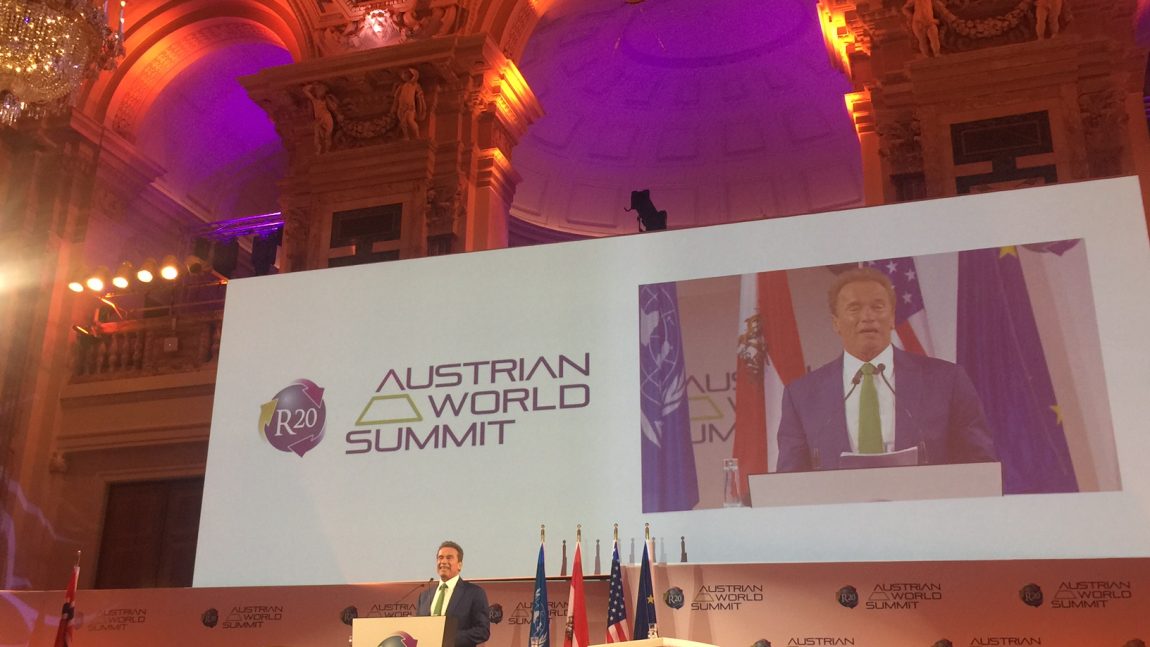Arnold Schwarzenegger is known all over the globe for his many accomplishments: world champion bodybuilder, Hollywood action hero, successful businessman, environmentalist, philanthropist, best-selling author, and California’s 38th Governor in 2003.
Since leaving office, Schwarzenegger co-founded the R20 Regions of Climate Action, a global non-profit dedicated to helping sub-national governments develop, implement, and communicate the importance of low-carbon and climate resilient projects as well as their economic benefits. Today saw the launch of the inaugural R20 Austrian World Summit, of which Considerate Hoteliers partner Xenia zu Hohenlohe sits on its high profile advisory board.
In December 2012, Schwarzenegger was recognised as a 2012 Global Advocate by the United Nations Correspondents Association for his work with the organisation.
Schwarzenegger’s most notable accomplishments while governor include the nation-leading Global Warming Solutions Act of 2006 – a bipartisan agreement to combat global warming by reducing California’s greenhouse gas emissions – and overhauling the state’s workers’ compensation system – cutting costs by more than 35 percent. In addition, Schwarzenegger was the first governor in decades to make major investments in improving California’s ageing infrastructure through his Strategic Growth Plan, helping to reduce congestion and clean the air. He established the Hydrogen Highway and Million Solar Roofs Plan, continuing his leadership in creating a greener environment. In November 2009, more than three years of leadership by Governor Schwarzenegger culminated with the passage of the Safe, Clean and Reliable Drinking Water Supply Act of 2010.
In August 2012, the University of Southern California Schwarzenegger Institute for State and Global Policy launched to provide students an opportunity to focus on the responsibility of leaders to transcend partisanship in order to implement policies that most benefit the people they serve. Its five priority areas of focus are education, energy and environment, fiscal and economic policy, health and human wellness, and political reform.



